Survival of the Fittest: Millennial Lawyers Are Skipping NY Bar Association Events. We Wanted to Know Why.
Dues are too expensive. The events aren't cool. Everyone in the room is twice my age. No one listens to me. I don't feel like I'm part of the clique. These are the complaints of millennial lawyers who are much less likely to show up at bar association events than lawyers in their 50s or older.
September 15, 2019 at 09:00 PM
7 minute read
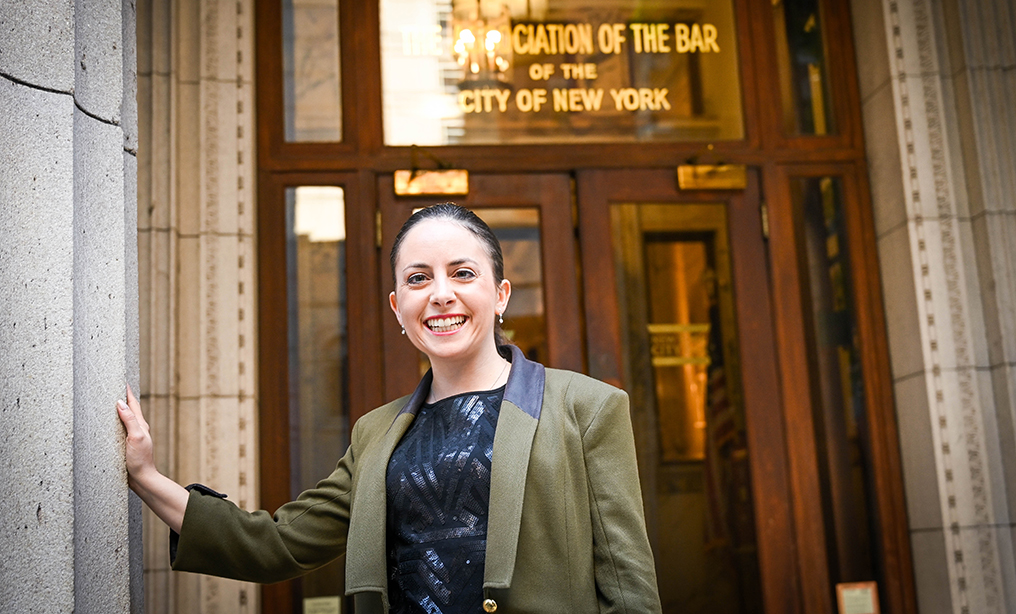 Leona Krasner, a matrimonial attorney in New York City, joined the City Bar Association in September. (Photo: David Handschuh/ALM)
Leona Krasner, a matrimonial attorney in New York City, joined the City Bar Association in September. (Photo: David Handschuh/ALM)
Leona Krasner, a 32-year-old matrimonial lawyer in New York City, said attending a bar association function is a lot like visiting the doctor. You dread going, but you know it's good for you.
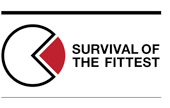 After hearing that analogy, you're probably thinking that Krasner is one of the millennial lawyers who doesn't belong to a bar association or isn't very active. But you'd be wrong! She chairs the communications committee for the New York State Bar Association's women in law section and she joined the City Bar in September.
After hearing that analogy, you're probably thinking that Krasner is one of the millennial lawyers who doesn't belong to a bar association or isn't very active. But you'd be wrong! She chairs the communications committee for the New York State Bar Association's women in law section and she joined the City Bar in September.
Krasner said she came up with innovative ideas for her state bar section but her suggestions were rejected. She thinks bar associations should tackle topics that touch millennials' personal lives such as how to negotiate raises, how to advance in your firm and how to balance work and family. Her ideal bar association event? One she attended several years ago that mixed sushi, drinks and a conversation on ethics.
"All the millennials went to that," she recalls. "People would rather go to a fun event than one that sounds boring."
Dues are too expensive. The events aren't cool. Everyone in the room is twice my age. No one listens to me. I don't feel like I'm part of the clique. These are the complaints of millennial lawyers who are much less likely to show up at bar association events than lawyers in their 50s or older.
"The conversation that I have had most often with my peers has been about money. It always boils down to 'my student loan is due next week and you want me to shell out another $100 for a bar association event. Are you mad?' said Sarah Filcher, 33, staff attorney for the Brooklyn Bar Association Volunteer Lawyers Project and vice president of LeGaL, the LGBT Bar Association of Greater New York.
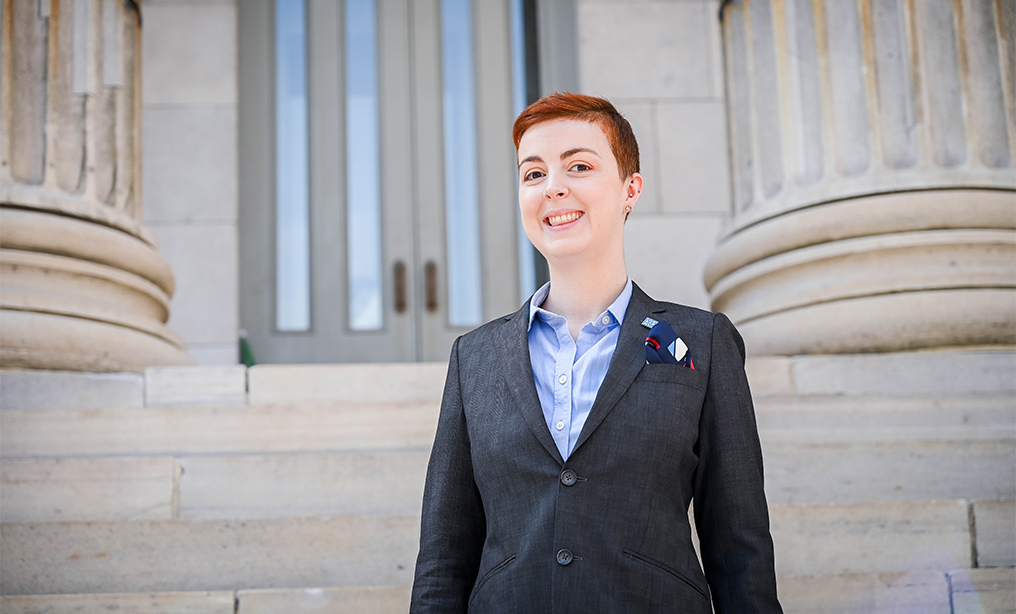 Sarah Filcher, staff attorney for the Brooklyn Bar Association Volunteer Lawyers Project and vice president of LeGaL, the LGBT Bar Association of Greater New York, at Brooklyn Borough Hall. She assisted homeowners through a Volunteer Lawyers Project clinic at Borough Hall. (Photo: David Handschuh/ALM)
Sarah Filcher, staff attorney for the Brooklyn Bar Association Volunteer Lawyers Project and vice president of LeGaL, the LGBT Bar Association of Greater New York, at Brooklyn Borough Hall. She assisted homeowners through a Volunteer Lawyers Project clinic at Borough Hall. (Photo: David Handschuh/ALM)"I think there is this assumption that millennials don't want to join anything," she said. "What people aren't hearing is the other end of that conversation. A bar association feels like a luxury item for a lot of millennial lawyers."
Filcher said she wishes more employers paid for bar associations because millennial lawyers, saddled with six-figure student loan debt, have little disposable income.
"I just don't think people are talking about how frequently the money is prohibitive for the individual attorney," she said. "It's almost as though you're priced out of professional development."
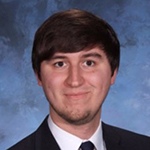 Andrew Gruna. (Courtesy photo)
Andrew Gruna. (Courtesy photo)The major social events that bar associations put on are even more difficult to justify on a millennial's budget, she said. "The galas are cost-prohibitive. To ask somebody to come up with at least $300 a ticket for one evening is a huge ask," she said.
Andrew Gruna, 26, who works for the city's Human Resources Administration, finds the events pricey. "If you're not at a firm that's willing to foot the bill, trying to get involved is tough," he said.
Gruna did enjoy going to a brewery tour in Brooklyn with the young lawyers' section of the state bar association but it didn't provide the networking opportunity that he had hoped.
"It seems to be sort of one or the other. Either come in for a three-hour ethics lecture where you'll fall asleep or grab a drink with other lawyers but we don't talk about what we do for a living," he said.
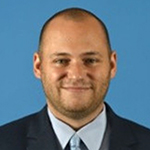 David Arpino. (Courtesy photo)
David Arpino. (Courtesy photo)David Arpino, 32, a criminal defense lawyer in Suffolk County who's working with his dad at a small family-owned firm, said he's glad he doesn't have to pay for bar association events out of pocket. "I imagine if I was paying it myself it might be a little cost-prohibitive."
Arpino attended a CLE class in Suffolk County with the goal of advancing in his field and getting his name out there. "I was probably the youngest one in the room by about 15 years," he said.
Shayla Ramos, 27, who graduated from the Maurice A. Dean School of Law at Hofstra University in May, has been trying to encourage her law school classmates to join bar associations but has had little success. They want to spend every available minute studying.
"Maybe in law school, they should push you a little more to network," she said. "Honestly, I feel they don't do it enough. Their focus is really you need to pass the bar. You need to be the best in your class."
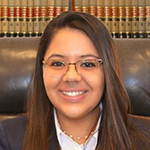 Shayla Ramos. Courtesy photo
Shayla Ramos. Courtesy photoShe wasn't able to get her friends who are now young associates to participate either. "I think as a young lawyer you're so involved in wanting to do your best at your new job you want to dedicate all your time," she said.
Ramos thinks that's a mistake. She belongs to five bar associations: the Hispanic National Bar Association, the New York City Bar Association, LeGaL, the LGBT Bar of Greater New York, the Nassau County Bar Association and the Federal Bar Council.
"It's really cool that as a student I was really welcome and it definitely opened the door to many opportunities now," she said.
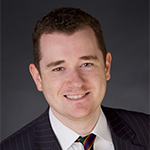 Joseph Greenwood. (Courtesy photo)
Joseph Greenwood. (Courtesy photo)Joseph Greenwood, 32, the vice-chair of membership for the international section of the New York State Bar Association, said that he has gained pivotal practice pointers enabling him to start a boutique international law firm from his New York State Bar Association membership. Despite his enthusiasm, he still thinks bar association functions leave something to be desired.
"The coolness of events is definitely questionable," he said. "To my mind, a lot of events are overthought—in a profession with long hours and demanding workloads, one's wishes for these events are fairly basic—to be able to network in a relaxed environment, with like-minded people of roughly the same age, over a few drinks and some food."
Editor's Note: This is the second of a six-part series. Next Up: How the New York City Bar Association Sparked the Biggest Jump in Membership in 17 Years.
Read the Previous Part of This Series:
Survival of the Fittest: As Baby Boomers Retire, NY Bar Associations Face Harsh Realities
Read the Next Part of This Series:
How the New York City Bar Association Sparked the Biggest Jump in Membership in 17 Years

Have you joined our group ALM Young Professionals Network on LinkedIn? We're having powerful conversations that tackle the challenges we all face early in our careers. Request to join here.
This content has been archived. It is available through our partners, LexisNexis® and Bloomberg Law.
To view this content, please continue to their sites.
Not a Lexis Subscriber?
Subscribe Now
Not a Bloomberg Law Subscriber?
Subscribe Now
NOT FOR REPRINT
© 2025 ALM Global, LLC, All Rights Reserved. Request academic re-use from www.copyright.com. All other uses, submit a request to [email protected]. For more information visit Asset & Logo Licensing.
You Might Like
View All
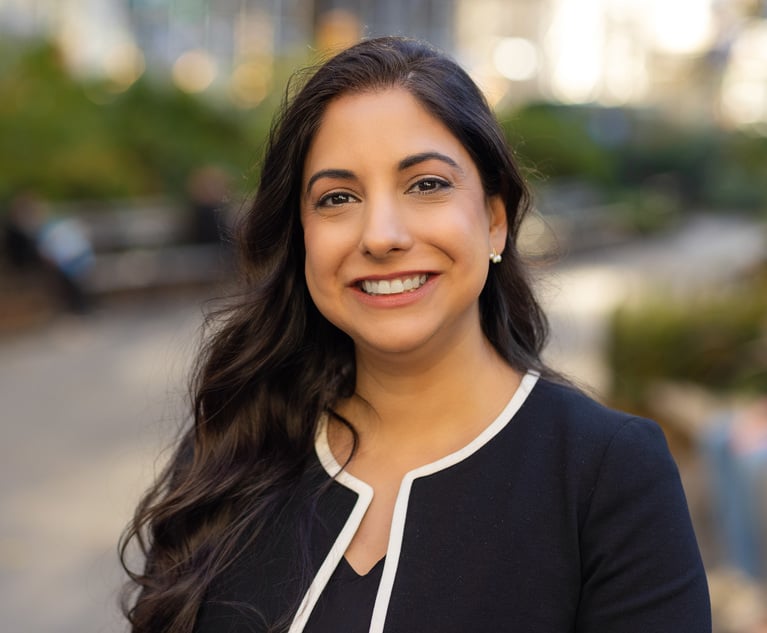
Family Law Practitioners Weigh In on Court System's New Joint Divorce Program

Former NY City Hall Official Tied to Adams Corruption Probe to Plead Guilty

New Charges Expected in Sex Trafficking Case Against Broker Brothers
Trending Stories
- 1How Clean Is the Clean Slate Act?
- 2Florida Bar Sues Miami Attorney for Frivolous Lawsuits
- 3Donald Trump Serves Only De Facto and Not De Jure: A Status That Voids His Acts Usurping the Power of Congress or the Courts
- 4Georgia Hacker Pleads Guilty in SEC X Account Scam That Moved Markets
- 5Trump's Pick for SEC Chair Likely to Stymie Shareholder Proposals from ESG Advocates
Who Got The Work
J. Brugh Lower of Gibbons has entered an appearance for industrial equipment supplier Devco Corporation in a pending trademark infringement lawsuit. The suit, accusing the defendant of selling knock-off Graco products, was filed Dec. 18 in New Jersey District Court by Rivkin Radler on behalf of Graco Inc. and Graco Minnesota. The case, assigned to U.S. District Judge Zahid N. Quraishi, is 3:24-cv-11294, Graco Inc. et al v. Devco Corporation.
Who Got The Work
Rebecca Maller-Stein and Kent A. Yalowitz of Arnold & Porter Kaye Scholer have entered their appearances for Hanaco Venture Capital and its executives, Lior Prosor and David Frankel, in a pending securities lawsuit. The action, filed on Dec. 24 in New York Southern District Court by Zell, Aron & Co. on behalf of Goldeneye Advisors, accuses the defendants of negligently and fraudulently managing the plaintiff's $1 million investment. The case, assigned to U.S. District Judge Vernon S. Broderick, is 1:24-cv-09918, Goldeneye Advisors, LLC v. Hanaco Venture Capital, Ltd. et al.
Who Got The Work
Attorneys from A&O Shearman has stepped in as defense counsel for Toronto-Dominion Bank and other defendants in a pending securities class action. The suit, filed Dec. 11 in New York Southern District Court by Bleichmar Fonti & Auld, accuses the defendants of concealing the bank's 'pervasive' deficiencies in regards to its compliance with the Bank Secrecy Act and the quality of its anti-money laundering controls. The case, assigned to U.S. District Judge Arun Subramanian, is 1:24-cv-09445, Gonzalez v. The Toronto-Dominion Bank et al.
Who Got The Work
Crown Castle International, a Pennsylvania company providing shared communications infrastructure, has turned to Luke D. Wolf of Gordon Rees Scully Mansukhani to fend off a pending breach-of-contract lawsuit. The court action, filed Nov. 25 in Michigan Eastern District Court by Hooper Hathaway PC on behalf of The Town Residences LLC, accuses Crown Castle of failing to transfer approximately $30,000 in utility payments from T-Mobile in breach of a roof-top lease and assignment agreement. The case, assigned to U.S. District Judge Susan K. Declercq, is 2:24-cv-13131, The Town Residences LLC v. T-Mobile US, Inc. et al.
Who Got The Work
Wilfred P. Coronato and Daniel M. Schwartz of McCarter & English have stepped in as defense counsel to Electrolux Home Products Inc. in a pending product liability lawsuit. The court action, filed Nov. 26 in New York Eastern District Court by Poulos Lopiccolo PC and Nagel Rice LLP on behalf of David Stern, alleges that the defendant's refrigerators’ drawers and shelving repeatedly break and fall apart within months after purchase. The case, assigned to U.S. District Judge Joan M. Azrack, is 2:24-cv-08204, Stern v. Electrolux Home Products, Inc.
Featured Firms
Law Offices of Gary Martin Hays & Associates, P.C.
(470) 294-1674
Law Offices of Mark E. Salomone
(857) 444-6468
Smith & Hassler
(713) 739-1250






